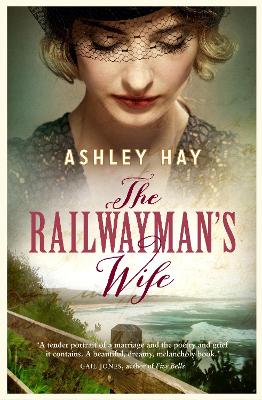Reviewed by Lianne on
The Railwayman’s Wife was an interesting read with a narrative that captures much of the nuances, pauses, and stops that happen in life–those fleeting moments as it were. The setting is perfect for the story, its quiet and beauty contasting with the inner turmoils of the characters. The book is very much character-driven, so if you’re looking for a particular event or arc guiding the narrative, there isn’t really one beyond the characters’ various personal journeys and their interactions. It’s also an interesting look at loss of varying types–of a loved one, of their old life, of themselves–and how they cope in the aftermath. I really felt for Ani and Isabelle, whom we meet first in the novel, especially as we’ve caught glimpses at the beginning of the novel and throughout as to how happy they were.
Unfortunately in the same vein I never quite warmed to the characters to truly empathise with them. They were interesting in their own right with what they faced, but I don’t know if it’s the writing or just the nature of the way their stories were presented that just left me a little detached to their stories on the whole, which is unfortunate because it would’ve packed a far more emotional punch if I were more invested in their characters. I did however find it interesting that while Mac’s death more or less jump-starts the novel, he did feel like a fourth character in the principal characters list as we do see glimpses of who he was and what his life was like before and after he met Ani leading up to his death. The loss of his life is also in keeping with the themes of this novel.
The Railwayman’s Wife was overall an interesting novel in the themes it tackles. I don’t think it was quite the fit with me as the characters weren’t terribly memorable but the setting and the writing had its moments. It had its lulls. Nonetheless I’m glad to have read it. Readers who like historical fiction novels set in Australia and are characte-driven may want to check out this title.
Reading updates
- Started reading
- 6 April, 2016: Finished reading
- 6 April, 2016: Reviewed
